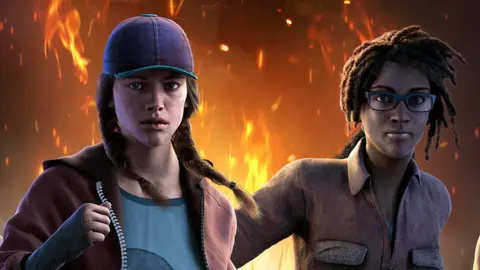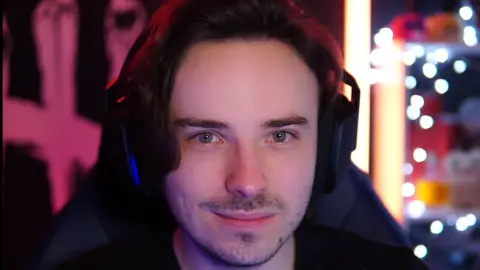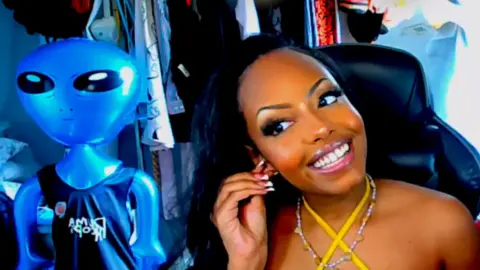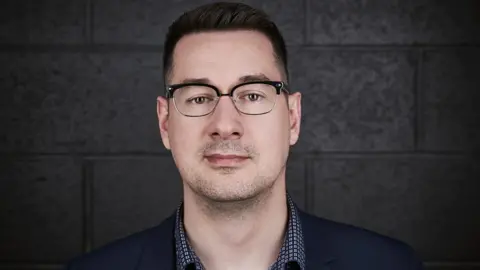Twitch: Why horror games are a haven for some gamers
 Behaviour
BehaviourWatching people jump, scream and be terrified might not sound like the safest space online.
But horror games are among some of the most popular streams on platforms like Twitch and YouTube.
Creators are spoilt for choice - this year's already seen big genre releases like Dead Space and the Resident Evil 4 remake.
And more are on the way.
That's perhaps not surprising - gaming and horror have always gone well together.
And they're a perfect match for streamers, who rely on big reactions to keep their fans watching.
But there are some gamers who've told BBC Newsbeat they find the genre especially appealing.
LGBT and black streamers say audiences who feel marginalised in other communities feel safest and happiest when they're playing horror games.
And they believe the people who watch them online come for a sense of belonging they don't get anywhere else.
Sammy, who describes himself as a queer horror streamer, says he broadcasts to more than 20,000 fans to help people make connections.
"It's brought a lot of us together. We can have amazing conversations. It's almost like a little book club," he says.
 Sammy
SammyA long-time scary movie fan, Sammy said it was a logical jump to streaming scary games.
He started with first-person shooter Doom, and things have built up from there.
"At the beginning I was very much like 'most people aren't going to watch this. It's a bit niche'," he says.
"But the more you do it, the more you realise there's a massive community out there that enjoy watching people be terrified.
"I think emotionally it's an exciting experience, especially with streaming because you get to share it with other people as well."
That's something Shani, known as Lilzesst on Twitch, agrees with.
"I'm a jumpy person. And I know my audience kind of loves that about me."
Shani says horror games have a particular appeal for black streamers like her.
"Horror tends to be a kind of safe space for minorities to come together," she says.
"And I think that inclusivity makes it easier to build community with other people.
"I've made a lot of great friends from playing these games, and I think that they'll be lifelong friends, honestly."
 Shani
ShaniOne of the biggest horror titles on Twitch is multiplayer hit Dead By Daylight (DBD).
It's an asymmetric game where four people take the role of survivors trying to avoid the clutches of a killer controlled by a fifth player.
And - you guessed it - the bad guy's job is to eliminate the whole team before they can open an exit and escape.
DBD, which launched in 2016, has gradually added a number of horror icons - like Ghostface from Scream and Freddy Krueger - to its cast.
Matthieu Côté, from developer Behaviour Interactive, describes the game as a "museum of horror" with some fan favourites as exhibits.
DBD is also noted for its engagement with its LGBT players - a group who seemed immediately drawn to the game when it was released.
Matthieu says the appeal was "sort of accidental at first", but maybe not a total surprise.
"Any group that's usually bullied or ostracised resonates really, really well with horror," he says.
"It connects with people in a way that I think action or other styles just can't."
 Behaviour Interactive
Behaviour InteractiveSince then Behaviour has embraced Dead by Daylight's LGBT fans and, introduced elements in response to their feedback.
And when it announced last year that one of its most popular characters was gay, it consulted US non-profit GaymerX on the reveal.
Matthieu says listening to LGBT fans allowed the company "to create characters that people can identify with, and therefore feel more for them".
"We sort of stepped away from the tropes of the 70s and 80s' horror movies where you had the jock and the nerd and all those archetypes," he says.
"Maybe these have done their time, and it's time to move forward."
Shani, who's played DBD often, says there have been some complaints over the years from its black players.
She says a recent controversy over a character customisation said to resemble racist "blackface" tropes was eventually addressed by the developer.
But she praises Behaviour's "willingness to listen to their audiences and allow for these conversations to be had".
"Now they have that insight and that perspective," says Shani, "it could maybe potentially help later on down the line when they're developing more games."


